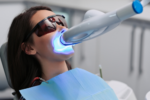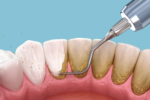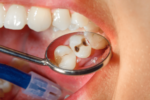Good oral care is just one of the many responsibilities that come with being a parent. Children’s teeth, compared to adult’s teeth, are more prone to cavities and fractures. That’s why it is a must that parents bring their children for dental check-ups at least twice a year. When children are already experiencing tooth pain even before they have visited a dentist, it makes it harder for the parent to convince them to have someone else look at their teeth. Their fear of adding more pain to what they already have hinders their ability to trust the dentist, especially with all the odd looking tools and scary sounds they hear in most dental offices.
Pediatric dentists are not that different from general dentists. They have the same medical degree and the same professional responsibilities. The only thing that sets pediatric dentists apart from general practice dentists is the certification training they have gained on how to deal with children, which for a parent may mean everything. They also study different procedures and techniques such as conscious and deep sedations that are applicable to treating children with autism. Pediatric dentists are strongly recommended for children with ADS, since they are familiar with the symptoms of the illness and they are trained in how to manage children with autism in order to complete necessary procedures.
Here are some points to remember when choosing the right pediatric dentist for your child:
Qualification and Certification
Please keep in mind that the pediatric dentist you choose to care for your child’s dental health should have completed a course in Pediatric Dentistry from an accredited institution.
Active License to Practice
The pediatric dentist should have a license that permits him or her to practice the said dental profession in your state. Professional dental licenses are approved and given by the state board. Usually certifications and licenses of dentists are displayed in the reception area of a dental clinic. If this is not the case do not hesitate to ask the dentist about it.
Good Behavior Management Skills
It is known that children with ASD possess disrupted communication and social skills. You need to find a dentist who has strong behavior management skills. A dentist that greets your child with a big, warm smile would be a good start. Pediatric dentists are specifically trained to use communication that is built on a dynamic process of dialogue, facial expression, and voice tone. A good example of a therapeutic interaction from your dentist to your child would be the dentist allowing the child to observe how the dental chair goes up and down, without the child having to sit on the chair yet. In this manner, the dentist is addressing your child’s fear. Pediatric dentists should not be aggressively forceful especially on the first dental visit.
Location
Also consider the distance you and your autistic child must travel to see the dentist. It would be better if the dental clinic is not too far from your house or neighborhood. In this way, prior to the actual day of the child’s appointment, you can always point out the dental clinic as a visual cue for your child every time you get to pass it, and maybe even take a quick tour if the staff will allow it. Longer distances also tend to prolong your child’s anxiety, which can lead to temper tantrums.
Knowledgeable on all available procedures and updates
The pediatric dentist of your choice should be knowledgeable of the different procedures in treating children, basic and advanced alike. He or she should be able to perform the basic prophylaxis and other routine dental care for your child and at the same time be well-informed and experienced when asked to do a more complex procedure such as root canals or sedations.
Ask around
Don’t forget to ask your family members and friends. They might be able to know good professional pediatric dentists that they can recommend.
Well equipped dental clinic
.
Another important detail to check is whether or not the dental clinic where the pediatric dentist practices is well equipped with the necessary materials. If your child with ASD requires sedation, materials such as a papoose board, oxygen tank, pulse oximeter and intubation sets should be readily available.
References
American Academy of Pediatric Dentistry, Reference Manual: Guidelines for Behavior Management, Adopted May, 1990, Revised May, 2000, Council on Clinical, Affairs, p.1








